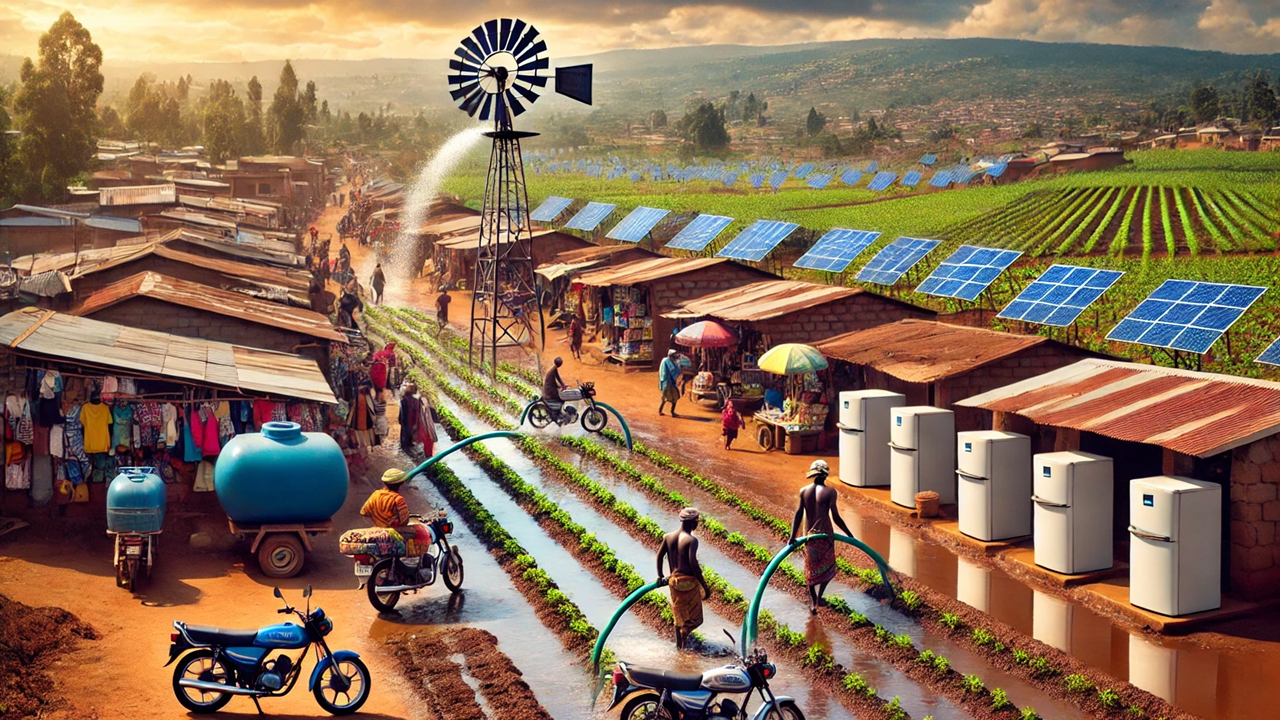Rwanda Launches $9M Ecosystem Restoration Project to Boost Climate Resilience
The project will focus on the Nyungwe–Ruhango Corridor, a biologically rich but climate-vulnerable region that includes parts of Ruhango, Nyanza, and Nyamagabe Districts.

- Country:
- Rwanda
Rwanda is poised to take a major step forward in environmental sustainability and climate resilience with the launch of the Ecosystem-Based Restoration Approach for the Nyungwe–Ruhango Corridor Project. Funded by a $9 million grant from the Global Environment Facility (GEF), the project will help restore degraded ecosystems, boost agricultural productivity, and unlock green economic opportunities for vulnerable communities in the country’s Southern Province.
This flagship initiative is part of the GEF-8 Ecosystem Restoration Integrated Program (ERIP), a global effort that supports 20 projects around the world aimed at reversing land degradation, promoting sustainable land use, and fostering climate adaptation. Conservation International serves as the lead agency for ERIP, while implementation in Rwanda will be carried out by the Rwanda Environment Management Authority (REMA).
A Landscape-Level Approach to Environmental and Economic Renewal
The project will focus on the Nyungwe–Ruhango Corridor, a biologically rich but climate-vulnerable region that includes parts of Ruhango, Nyanza, and Nyamagabe Districts. The intervention will use a landscape-based approach to restore ecosystems and reduce risks from climate-induced hazards such as floods, landslides, and soil erosion, all of which threaten livelihoods, infrastructure, and food security.
The project is aligned with the World Bank’s Country Partnership Framework for Rwanda, which prioritizes climate adaptation, biodiversity conservation, and inclusive green growth. According to Sahr Kpundeh, World Bank Country Manager for Rwanda:
“This project reflects the strong partnership between the World Bank and the Government of Rwanda in building climate resilience and driving inclusive green growth. It aligns with global and national priorities on sustainable development and empowering local communities.”
Environmental and Social Benefits at Scale
The Rwanda GEF-8 project is designed to deliver measurable outcomes in both environmental restoration and socioeconomic upliftment:
-
Rehabilitate 2,162 hectares of degraded forests and wetlands.
-
Promote sustainable land management practices across 8,931 hectares of farmland.
-
Directly benefit over 289,000 people through climate-smart interventions and income-generating activities.
-
Create an estimated 2,200 green jobs, particularly for women and youth, by supporting:
-
Non-timber forest product (NTFP) value chains.
-
Agroforestry initiatives, including fruit tree planting.
-
Development of eco-friendly small businesses.
-
“These are not just environmental wins; they are economic wins too,” said Tuuli Bernardini, Senior Environmental Specialist at the World Bank.
“By centering the role of women, youth, and local enterprises in landscape management, the project supports inclusive development and paves the way for scalable nature-based solutions.”
Nature-Based Solutions and Green Economy Integration
The project’s holistic approach includes a suite of nature-based interventions designed to protect and restore essential ecosystem services. Key activities will include:
-
Afforestation and reforestation in deforested or degraded areas.
-
Riverbank and wetland rehabilitation to prevent flooding and maintain water quality.
-
Agroforestry practices that integrate trees with crops and livestock, improving soil fertility and productivity.
-
Support for private sector engagement, including investments in sustainable forestry and climate-smart land use.
By reducing dependency on overexploited natural resources, these efforts aim to alleviate pressure on the ecosystem while creating sustainable livelihoods rooted in environmental stewardship.
Building on Rwanda’s Strong Track Record in Restoration
The GEF-8 project complements Rwanda’s broader portfolio of World Bank-supported environmental and agricultural investments, including:
-
The Volcanoes Community Resilience Project, which promotes community-based conservation in the northwestern region.
-
The Commercialization and De-Risking for Agricultural Transformation Project, which supports climate-smart agribusiness.
-
The Landscape Approach to Forest Restoration and Conservation (LAFREC), a previous model initiative that set the groundwork for integrated ecosystem management in Rwanda.
These programs are integral to achieving Rwanda’s National Strategy for Transformation (NST2), which emphasizes sustainable land use, biodiversity protection, and poverty reduction.
A Model for Climate-Resilient Development in Africa
By integrating environmental restoration with economic opportunity and social inclusion, the Rwanda GEF-8 project sets a benchmark for climate-resilient development not only within the country but across the African continent. The emphasis on South-South exchange, private sector collaboration, and community-led action further enhances its potential for replication in other regions facing similar ecological and development challenges.
The project embodies the World Bank Group’s mission of creating “more and better jobs” while protecting vital natural systems that underpin sustainable development.
ALSO READ
Court in Jammu remands two men arrested in connection with Pahalgam terror attack in NIA custody for 5 days.
NCP Criticizes Abu Azmi for Divisive Remarks on 'Wari'
Daikcell India's Remarkable Growth: From Startup to Powerhouse
Jammu Court Grants NIA Five-Day Remand Over Pahalgam Terror Attack Arrests
Global Markets Remain Resilient Amid Middle East Tensions










